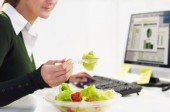Canceled Clients (4762)
Children categories

Train Your Body (438)
The show for fitness buffs or beginners. Expert guest from the American College of Sports Medicine (ACSM) discuss all areas of fitness, nutrition, athletics and sports medicine.
View items...
Staying Well (382)
RadioMD’s “talking” Health A-Z hosted by senior health correspondent, Melanie Cole, MS. Melanie interviews experts in the world of health, wellness, fitness and medicine.
View items...
Healthy Talk w/ Dr. Michael Smith (698)
Integrative physician, Michael A. Smith, MD is committed to providing listeners with the most current health information available.
View items...
Naturally Savvy (899)
Registered Holistic Nutritionist, Andrea Donsky and health expert Lisa Davis discuss their passion for living a natural, healthy lifestyle.
View items...
Eat Right Radio (48)
EatRight Radio, with experts from the Academy of Nutrition and Dietetics, discusses food and nutrition topics, healthy weight, allergies and health conditions, healthy aging, food safety and so much more. Give us 10-minutes and we'll give you the important information and expert advice from registered dietitian nutritionists to help you eat right, feel better, and live a healthier life. Hosted by Melanie Cole, MS.
View items...
Sharecare Radio (235)
Sharecare Radio, hosted by Sharecare’s own Dr. Darria Long Gillespie, SVP of Clinical Strategy at Sharecare, will appear live every Tuesday from 12 to 1 p.m. EST on RadioMD. Dr. Darria will break down the top health news of the week, pull in experts from around the country on a wide array of health topics and answer listeners’ live questions on all things health.
View items...
Wellness for Life (455)
On Wellness For Life Radio you will learn practical, easy-to implement tips to improve your life and start feeling better — the natural way.
View items...
The Wizard of Eyes (163)
Dr. Robert Abel Jr. talks about many of the important and unrecognized parts of our visual system which we so often take for granted. The show covers the usual common ocular disorders with an East/West approach to both prevention and therapy. The eye-brain connection is presented with information about memory retention, Alzheimer's, the myopia epidemic, and many more subjects. Dr. Abel discusses how the eye and vision are connected with remote parts of the body including your gut flora, musculoskeletal system, blood pressure, drugs and lifestyle. practical and simple health tips.
View items...
Code Delicious with Dr. Mike (135)
Code Delicious with Dr. Mike breaks all the rules. Unabashedly confronting the questions, concerns and conundrums that continually confuse both public and experts alike; Dr. Mike takes us on a tasty trip of inquiry.
View items...
CLEAN Food Network (98)
This show is a call to action for all the clean eating revolutionaries that care about their health and how and what they eat. Non-GMO, natural, organic . . . food the way nature intended. The clean food movement is huge and is growing exponentially. This companion program talks to experts in food preparation, healthcare, celebrities, and even those companies that care enough to provide the best, wholesome, organic foods and groceries.
View items...
Talk Healthy Today (213)
Looking to create your best self? Whether it’s good-for-you lifestyle hacks, smarter ways to supplement, or tasty tips to fuel optimal health, Talk Healthy Today brings you the latest research, tools, and common sense tips you need to get and stay healthy... starting today!
View items...
Be a Doer (17)
Be A Doer features master coach and TV personality John Abdo as he shares health and fitness tips aimed at getting you in shape – and keeping you there!
View items...The Power of Probiotics (3)
Probiotics is a major global industry. But like any industry, it had to have a beginning. Natasha Trenev is the daughter of an Eastern European family where the manufacturing of yogurt was a generational business. When Natasha emigrated to the US in the 1960’s, she brought with her 750 years of family experience with probiotics – and introduced the science (and the term itself) to her new country. Today, Natasha’s California-based Natren, Inc. is the recognized pioneer in probiotics and company founder Natasha Trenev has earned recognition as the Mother of Probiotics. Her more than 50 years of work in natural health is at the core of the unparalleled success of her company – and you will benefit from her depth of expertise in each and every episode of THE POWER OF PROBIOTICS.
Probiotics are live microrganisms that are commonly referred to as ‘friendly,’ ‘good’ or ‘healthy’ bacteria that function to help maintain the natural balance of organisms in the intestine. Throughout Natasha’s extensive work in the field of probiotics, she has always been amazed by how nature provides the very ‘good’ bacteria that can help overpower ‘bad’ bacteria to keep our digestive tracts functioning at peak performance. Properly cultivating friendly bacteria and ensuring their potency is at the core of the Natren Process. Natren is cited – by retailers, by the medical community and by consumers – as the best probiotic supplement available. Only Natren carefully chooses its probiotic cultures, formulates and manufactures its industry standard probiotics in its own plant and utilizes a specially-formulated oil matrix to protect probiotics bacteria to survive until they reach their destination in the upper small intestine. This is why only Natren is the most trusted probiotic supplement on the market. Truly, where other probiotic supplements promise – Natren Delivers.
To learn more about how probiotics can benefit your health, we are proud to introduce you to THE POWER OF PROBIOTICS with The Mother of Probiotics, Natasha Trenev.

Your Brain Health (24)
Noted Los Angeles-based neuroscientist and media personality Dr. Kristen Willeumier launches Your Brain Health with Dr. Kristen Willeumier, a podcast series that explores the latest news and information in the burgeoning science of brain health.
View items...Additional Info
- Segment Number 1
- Audio File train_your_body/1437tb2a.mp3
- Featured Speaker John P. Higgins, MD
- Organization ACSM
-
Guest Bio
 John P. Higgins MD, MBA (Hons), MPHIL, FACC, FACP, FAHA, FACSM, FASNC, FSGC is a sports cardiologist for The University of Texas Health Science Center at Houston, Memorial Hermann-Texas Medical Center and the Harris Health System. His research interests include the effects of energy beverages on the body, and screening for underlying cardiovascular abnormalities in 12-year-olds (6th graders), and steroid effects on the cardiovascular system.
John P. Higgins MD, MBA (Hons), MPHIL, FACC, FACP, FAHA, FACSM, FASNC, FSGC is a sports cardiologist for The University of Texas Health Science Center at Houston, Memorial Hermann-Texas Medical Center and the Harris Health System. His research interests include the effects of energy beverages on the body, and screening for underlying cardiovascular abnormalities in 12-year-olds (6th graders), and steroid effects on the cardiovascular system.
-
Transcription
- Length (mins) 10
- Waiver Received No
- Host Melanie Cole, MS
Additional Info
- Segment Number 1
- Audio File eat_right/1437nd1a.mp3
- Featured Speaker Joan Salge Blake, MS, RDN, LDN
- Organization Academy of Nutrition and Dietetics
-
Guest Bio
 Joan Salge Blake is a clinical associate professor and director of the dietetic internship at Boston University's Sargent College of Health and Rehabilitation Sciences. In 2012, she was nominated by the university for the U.S. Professor of the Year Award and previously received the University's prestigious Whitney Powers Excellence in Teaching Award.
Joan Salge Blake is a clinical associate professor and director of the dietetic internship at Boston University's Sargent College of Health and Rehabilitation Sciences. In 2012, she was nominated by the university for the U.S. Professor of the Year Award and previously received the University's prestigious Whitney Powers Excellence in Teaching Award.
Blake is the author of Nutrition & You (Pearson 2014); Nutrition & You: Core Concepts to Good Health (Pearson 2010); and Eat Right the E.A.S.Y. Way (Simon & Schuster 1991), as well as co-author of Nutrition: From Science to You (Pearson 2014). Blake was named by Good Housekeeping Magazine "The Most Trusted Person to Follow on Twitter" for healthful eating advice.
Learn more about Joan Salge Blake -
Transcription
Melanie Cole (Host): According to a recent home food safety survey, 83% of adults chow down a meal and snack at their desk, many in an attempt to save money and time. But what is this doing? Is this increasing our risk of food poisoning? How is that happening? My guest is Joan Salge Blake. She is an associate professor and director of the Dietetic Internship at Boston University, Sargent College of Health and Rehab Sciences. Welcome to the show, Joan. Eating at our desk, eating on-the-go, grabbing something from a food truck, let’s talk about food safety. Tell us what you think are the most important issues in food safety today.
Joan Salge Blake (Guest): Right. Thank you so much for having me on and talking about this because this is so important. You know, the survey that was done by the Academy of Nutrition and Dietetics, along with ConAgra Foods, showed that of these adults they surveyed, they revealed that only 50% of those surveyed admitted to washing their hands prior to having their lunch at their desks. When you think about that, that just increases the risk of food-borne illness, because your hands have been working on your office all day long, you’ve been opening doors, you’ve been meeting with the people, and you think about the germs that potentially could be on your hands, and then if you’re picking up a sandwich and eating it, it could be increasing risk of getting pathogens onto your food and then into your body.
Melanie: So people bring their lunches to work, we send our kids to school with their lunches and I put mayonnaise on a kid’s sandwich and send it to them in a little cold pack, but I’m never quite sure, and especially in the summer, so what do we have to know about – okay, so washing our hands before we eat, number one, so important especially if you’re eating at your desk or you’re at school, wash your hands. What else? What about the food itself?
Joan: Right. The food itself, we want to make sure that it stays cold from the time that you leave the house until the time that it’s eaten. One of those important things you want to do is first of all, pack in some kind of vinyl-insulated bag where it can be kept cold. What you’d also want to do, and that was great which you said about having an ice pack in there, but really, that’s only half the job. We want to now make sure you have two of them. One is not going to keep it cold longer and you want to sandwich the sandwich in between the two ice packs, enclosing the food safety bag and lunch bag and then bringing it with you to work or at school. If you have a refrigerator available to you, it would be really ideal for the entire vinyl lunch bag to go into the refrigerator until you’re ready to eat it.
Melanie: Is there such a thing as knowing if something is going to make you sick? We hear rainbow meat, you smell things. My kids are forever smelling the milk before we drink it. Where food safety is concerned, Joan, is there a way to tell before you eat something whether it’s gone bad?
Joan: I wish there was, but there isn’t. We have two things going on here: When something smells a little off, that’s more of food spoilage. It doesn't necessarily mean it’s going to cause you to get sick, but it’s just not going to taste good. The problem with the pathogens that cause food poisoning or food-borne illness is they don't have any odor. Nothing is going to taste off about it and that’s the real problem. There’s no tipoff and that’s why it’s so important to make sure that the food while travelling stays cold, because we know when the food is colder—and when I say that, it’s 40 degrees or below, which is a refrigerator temperature—the pathogens do not multiply as fast. When food is left out at room temperature, they love that warmer temperature and they have a heyday multiplying to the point where it can actually make you sick.
Melanie: Now what about bringing things like hot food or something that you have to heat up at work? Does that automatically make you confident that this is not going to be something that’s going to carry a food-borne illness if you chuck it in the microwave before you eat it?
Joan: That’s a fabulous question. It is very important that we want to make sure that it stays cold that it doesn't multiply and then you want to make sure if you reheat it, you reheat all of it to at least an internal temperature of 165. The problem with the microwave because, you know, you throw it in the microwave and heat it up, if it’s something like a soup or a stew, you want to make sure that it gets heated thoroughly, all of it, not just the outside, and make sure there’s no cold pockets within that soup or chili or any kind of an entrée dish that you’re having. It’s really important that it gets reheated thoroughly, all of it, to that temperature of 165 degrees Fahrenheit.
Melanie: Here’s something you see at the office all the time. People leave candy on their desks, in a bowl open, maybe M&Ms or Skittles or something like that and they’re sitting there and they don't have a top on them and they’re just sitting out. What can we assume or not assume about these candies as people go by and grab a few? Are there some pathogens that could be sitting in there or are they just getting dusty?
Joan: Well, they get a little bit of both. If you don't know what hand has been in that bowl and where that hand, whether if there’s any germs or pathogens on that hand, it could actually be infecting the entire bowl. Then if you come along and you eat something – Yes, if the pathogen was on there, brought on by somebody else, it could contaminate the whole bowl. So rule of thumb is I wouldn’t be so quick to be just digging into a bowl where the candies are not individually wrapped so that this way, you know that once you peel it, what’s inside of it hasn’t been contaminated by somebody else.
Melanie: What about keeping our area clean where we eat, whether it’s in the little office lunchroom or the desk where we eat, how often do you think you need to clean your mouse, your keyboard, these things that your hands are touching every day? Maybe you had a cold last month and then this month, is there still some virus hanging around on there?
Joan: Another good question. If you’re going to eat at your desk and do this desktop dining here, you really should be cleaning your entire desk surface before—and you can use one of those nice wipes to clean it—you should clean it before and you should clean it afterwards and making sure your hands are washed, so this way, the surface area that you’re eating at is clean. It’s really funny because if this was home in your kitchen, you would never put a dinner out on your table that has dust or dirt or anything. You would always wipe down the table, put out a placemat and have a nice dinner and then you’d wipe up afterwards. But for some reason, people think when they dine at their desk, they forget about cleaning the table before and cleaning the table after. So you really need to remember that if you choose to eat at your desk.
Melanie: Are there certain foods you just really prefer, safer than others, like peanut butter for example? If you use a refrigerated peanut butter—but sometimes peanut butter doesn't have to be refrigerated—do we worry about those kinds of things?
Joan: If it is shelf-stable, the regular commercial peanut butter, it doesn't have to be refrigerated. That’s absolutely fine. What we just want to make sure is that if there’s anything else you’re packing in the lunch that is perishable that it stays cold. And, you know, something people forget is cut-up fruits and vegetables. Once that’s cut, you need to make sure that that produce stays at that cold temperature. Make sure, while the peanut butter sandwich doesn’t have to be kept cold, the cut-up fruits and vegetables do.
Melanie: That’s great advice because I always look at a salad and say, if the lettuce is a little green or a little wilted on the edges or a little bit black around the edges, is that going to make us a little bit sick or is it carrying something? In just the last minute, Joan, please wrap it up for us. Give us your best advice for food safety at our desk, on-the-go, dining at our desk.
Joan: Okay. We want to make sure you are washing your hands. Every time before you go to eat something, always make sure your hands are clean. Wash your desktop and clean it before and after you’re dining, just like what you do with your kitchen table, and carry your food in a lunch bag that is going to keep your foods cold and make sure you pack your lunch with not one but two cold packs.
Melanie: Thank you so much. You’re listening to Eat Right Radio with our friends from the Academy of Nutrition and Dietetics. For more information, you can go to eatright.org. That is eatright.org. This is Melanie Cole. Thanks so much for listening. - Length (mins) 10
- Host Melanie Cole, MS
Additional Info
- Segment Number 5
- Audio File naturally_savvy/1436ns3e.mp3
- Featured Speaker Mickey Barber, MD
- Guest Website Cenegenics Carolinas
- Guest Twitter Account @AgingHealthy
-
Guest Bio
Dr. Mickey Barber is a highly sought-after speaker and contributor to various media outlets with expertise on a variety of age management and healthy living topics. Dr. Barber offers an integrative approach to age management medicine while providing the patient with assessment of hormonal balance and overall health and disease risk. Her philosophy for successful aging includes maintaining energy, health and sexual vigor through shared responsibility of the patient-doctor team.
Dr. Barber teaches her patients about hormonal balance as well as the importance of healthy eating and exercise. She feels strongly that she should “practice what she preaches” and focuses on balance in her own life. She placed second in a masters figure competition after beginning an age management program and is a living example of the benefits of the program. Her mantra is "Age 59 is the new 39." Dr. Barber resides with her family on the Isle of Palms just outside historic Charleston, South Carolina. Follow Dr. Barber on Twitter at @AgingHealthy and learn more at www.CenegenicsCarolinas.com. -
Transcription
- Length (mins) 10
- Waiver Received Yes
- Host Andrea Donsky, RHN and Lisa Davis, MPH
Additional Info
- Segment Number 4
- Audio File naturally_savvy/1436ns3d.mp3
- Featured Speaker Risa Barash
- Guest Website Fairy Tales Hair Care
- Guest Twitter Account @fairytalesinc
- Guest Bio Risa Barash is the Co-Owner and Co-Founder of Fairy Tales Hair Care, a line of affordable and natural professional hair care products for kids. A former stand-up comic, Risa has since partnered with school nurses, moms and pediatricians across the nation to help prevent lice outbreaks. She has also developed a leading natural formula for lice prevention and treatment. After spending years in the business of bugs, Risa knows the ins and outs of lice removal, can discuss the pros and cons of natural vs. chemical treatments, and give parents some peace of mind before sending their kids back to the classroom this fall.
-
Transcription
- Length (mins) 10
- Waiver Received Yes
- Host Andrea Donsky, RHN and Lisa Davis, MPH
Additional Info
- Segment Number 3
- Audio File naturally_savvy/1436ns3c.mp3
- Featured Speaker Amy Hendel
- Book Title The 4 Habits of Healthy Families
- Guest Website Amy Hendel, HealthGal
- Guest Twitter Account @HealthGal1103
-
Guest Bio
Known as "The HealthGal," contributing health expert and blogger, Amy Hendel, is a popular medical and lifestyle reporter, lifestyle expert, columnist and spokesperson. Trained as a physician's assistant and nutritionist, she maintains a private practice as a health coach. Her first book, Fat Families Thin Families (BenBella Publishers, 2008), offers a team approach to helping families cope with obesity and related health issues. The newest edition, The 4 Habits of Healthy Families, is available at bookstores and online.
Amy is featured host of Healthination’s What’s for Lunch?, Food Rescue and Simple Smoothies. She’s been a guest on Today, Good Morning America, FOX News, Access Hollywood Live, Early Show, Marie!, Rachel Ray, 700 Club, EXTRA, and national and local news and talk shows. Past producer and host of healthy home segments on HouseSmarts, Amy has also hosted Westwood One’s Good Eating Good Living, Lifetime's Stories on the Beach, and the PBS medical talk shows HealthZone and Doctors on Call. -
Transcription
- Length (mins) 10
- Waiver Received Yes
- Internal Notes repeat guest
- Host Andrea Donsky, RHN and Lisa Davis, MPH
Additional Info
- Segment Number 2
- Audio File naturally_savvy/1436ns3b.mp3
- Featured Speaker Ajay Goel, PhD
- Guest Bio Ajay Goel, PhD, is director of epigenetics and cancer prevention at the Gastrointestinal Cancer Research Lab at Baylor Univeristy Medical Center in Dallas. He has spent 20 years researching cancer and has been the lead author or contributor to more than 100 scientific articles published in peer-reviewed international journals and several book chapters. He is currently researching the prevention of gastrointestinal cancers using integrative and alternative approaches, including botanical products. Two of the primary botanicals he is investigating are curcumin (from turmeric) and boswellia. Goel is a member of the American Association for Cancer Research and the American Gastroenterology Association and is on the international editorial boards of World Journal of Gastroenterology and World Journal of Gastrointestinal Oncology. He also performs peer-reviewing activities for almost 50 scientific journals and serves on various grant funding committees of the National Institutes of Health.
-
Transcription
- Length (mins) 10
- Waiver Received Yes
- Internal Notes repeat guest
- Host Andrea Donsky, RHN and Lisa Davis, MPH
Additional Info
- Segment Number 1
- Audio File naturally_savvy/1436ns3a.mp3
- Featured Speaker Jennifer Esposito, actress
- Book Title Jennifer's Way: My Journey with Celiac Disease--What Doctors Don't Tell You and How You Can Learn to Live Again
- Guest Website Jennifer's Way
- Guest Twitter Account @JennifersWayJE
-
Guest Bio
Jennifer Esposito is an actress, celiac activist, bakery owner, founder of Jennifer's Way Bakery and author of Jennifer's Way: My Journey with Celiac Disease--What Doctors Don't Tell You and How You Can Learn to Live Again.
Visit Jennifer's Way Bakery for Gluten Free, Dairy Free, Soy Free, Organic, Allergy Friendly Bakery items. - Transcription
- Length (mins) 10
- Waiver Received Yes
- Host Andrea Donsky, RHN and Lisa Davis, MPH
Additional Info
- Segment Number 5
- Audio File healthy_talk/1435ht4e.mp3
- Organization Life Extension
- Guest Website Healthy Talk MD
-
Guest Bio
-
Transcription
- Length (mins) 10
- Waiver Received No
- Internal Notes NO GUEST
- Host Mike Smith, MD














